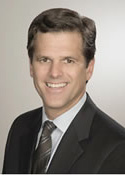
 March 24, 2010 – The Kirch Conference, presented annually to honor Andrew J. Kirch, brings information about developmental disabilities to individuals with disabilities, their families, and the professionals who work with them. The Conference is presented by the University of Rochester Medical Center and Warner School of Education, and the Golisano Foundation.
March 24, 2010 – The Kirch Conference, presented annually to honor Andrew J. Kirch, brings information about developmental disabilities to individuals with disabilities, their families, and the professionals who work with them. The Conference is presented by the University of Rochester Medical Center and Warner School of Education, and the Golisano Foundation.
This year’s conference focuses on wellness and developing healthy lifestyles for transition age individuals with developmental disabilities. The Golisano Foundation is pleased to sponsor the keynote speaker, Timothy Shriver, Ph.D., who will focus on health and wellness for athletes with developmental disabilities.
Timothy Shriver, Ph.D. Keynote
Timothy P. Shriver, Chairman of the Special Olympics for 14 years, serves 3.1 million Special Olympics athletes and their families in 175 countries. Shriver has helped transform Special Olympics into a movement that focuses on respect, acceptance, and inclusion for individuals with intellectual disabilities in all corners of the globe.
He launched the organization's most ambitious growth agenda leading to the recruitment of over 2 million new athletes around the world. He has created new Special Olympics initiatives in athlete leadership, cross-cultural research, health, education, and family support, and has worked to garner more legislative attention and government support for issues of concern to the Special Olympics community, testifying before Congress on numerous occasions.
Conference Agenda
8:00 to 9:00 Registration - Visit with Vendors - Continental Breakfast
9:00 to 9:15 Welcome
9:15 to 10:30 Workshop Session A (Choose One)
A-1 Transition Health Care - A Team Approach,Tiffany Pulcino, MD, Culver Medical Group
Effective health transitions require participation and coordination between multiple systems; pediatric and adult primary care, specialists, hospital teams, educational and community support teams, and the family. Explore strategies for optimizing the roles of various participants and instituting effective coordination in order to make a healthy transition.
A-2 Putting Health and Independence into the IEP, Alissa Mayer,Transition Specialist, MidWest TASC
Individualized Education Plans and Transition Plans can be opportunities for student to identify important health and independence goals. Review statewide IEP format and how health/independence can be included to positively impact a student's education and outcomes in life.
A-3 Managing Parent Stress during the Transition Years, Lori Jeanne Peloquin, Ph.D.
Parenting during the adolescent and young adult years involves multiple stressors for all parents, and particularly for parents of children with disabilities. This session will discuss effective parenting during the transition years and ways for families to cope with the stressors of this life phase.
A-4 PANEL: Sports & Fitness: Promoting Health & Social Skills, Lorna Patanella, PNP, SCDD; Laurie Kennedy, Special Olympics of NY
Physical activity is an important way to maintain health, engage in social relationships, and have fun. This panel will discuss ways for youth and young adults of all levels of physical ability to engage in a range of physical activities.
10:30 to 11:00 Break with Vendors
11:00 to 12:15 Workshop Session B (Choose One)
B-1 Optimizing Health & Well Being for Adolescents and Young Adults with Cerebral Palsy, Gregory Liptak, MD, MPH, Upstate Medical University
Adolescents and young adults with CP may have a range of health issues and risk factors. Learn how to most effectively manage common health conditions and attend to potential risk factors in order to maintain optimal health throughout the adult years.B-2 Sexuality and Developmental Disabilities: The What, Why, When, Where and How, Angela Allen, MSW ; Jeanne Ricigliano, Strong Center for Developmental Disabilities
Sexual development is an important part of the adolescent and young adult years for youth with and without disabilities. This session will cover strategies for discussing sexuality, maintaining personal safety, and identifying appropriate resources.B-3 Building Relationships with Peers: The Role of Groups for Individuals with Disabilities, Julie Christensen, LMSW; Kristen Love, M.Ed., Institute for Innovative Transition, Strong Center for Developmental Disabilities
Social groups can be important for individuals with disabilities in order to create social opportunities and foster networking in the community. The pros and cons of a variety of group approaches, including adult-led versus youth-led and inclusive vs. non-inclusive will be discussed and examples provided.B-4 PANEL: Future Care Planning Services: Ensuring Legal and Financial Security for Loved Ones with Developmental Disabilities, Doris Green, MPA, Future Care Planning Advance planning for the financial and legal needs of individuals with developmental disabilities is an important part of the transition to adulthood. This session will cover topics such as wills, benefits, health insurance, powers of attorney, health care proxies, and supplemental needs trusts.
12:30 to 2:00 Lunch and Keynote Speaker
Timothy Shriver, Ph.D., Chairman and CEO of Special Olympics International
Sonsored by the Golisano Foundation
2:15 to 3:30 Workshop Session C (Choose One)
C-1 Welcome to HealthyTransitionsNY.org, Nienke Dosa, MD, MPH, Patricia Slaski, M.Ed., Laurie James, M.Ed., Upstate Medical University
An overview of HealthyTransitionsNY.org, web-based resource for youths, families, and professionals, that raises awareness about developmental disabilities, improves communication, and builds effective partnerships during the transition from pediatric to adult healthcare.C-2 Person Centered Planning: Nothing About Me Without Me, Jeanne Ricigliano, BOCES 1 and SCDD
This session will cover the process and philosophy of Person Centered Planning, when and how can PCP be implemented and why is PCP important in IEP development and transition planning.C-3 Shared Living: Creating Innovative, Individualized Living Options for Persons with Developmental Disabilities, Martha Mock, Ph.D., SCDD and Warner School of Education
View the film "The Key of G" and participate in a discussion of innovative living options.C-4 PANEL: Strategies for Navigating the Health Care System, Stephen Sulkes, MD, SCDD
Understanding and accessing health services for youth and young adults with disabilities can be confusing. In this panel, health care providers, family members, and others will share strategies for making the system work effectively for each individual.